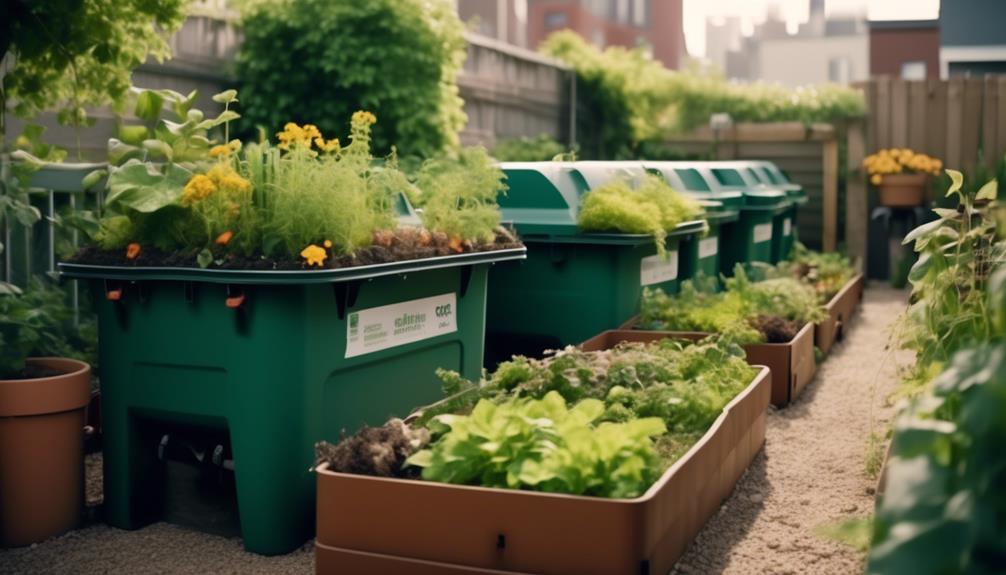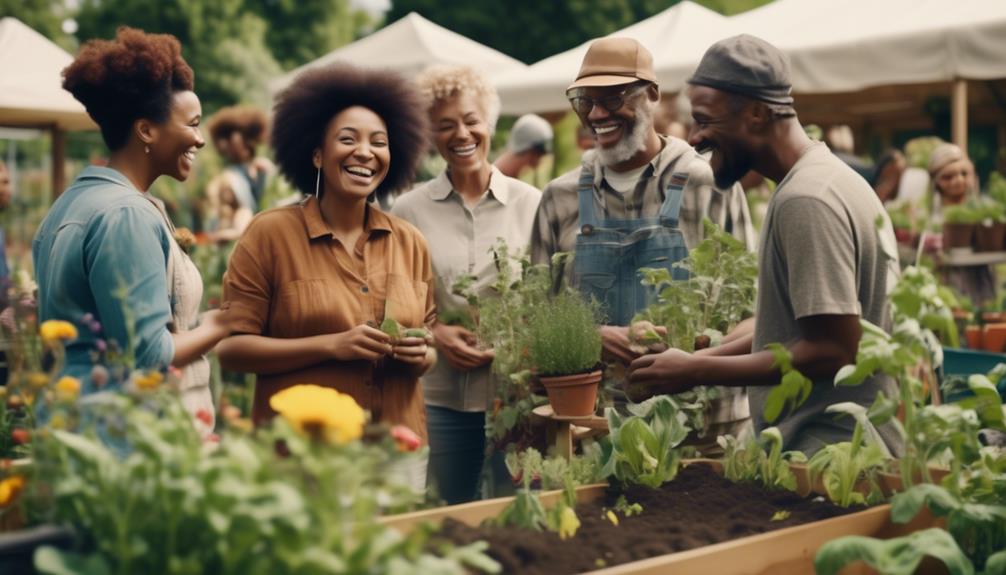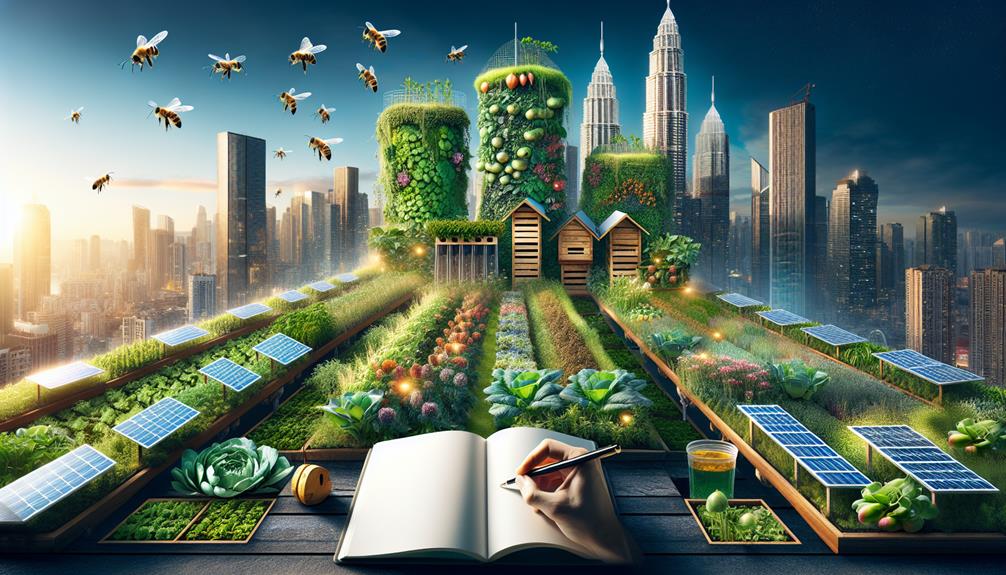Sustainable living has become a prominent goal for many individuals and communities seeking to minimize their environmental impact and foster a more harmonious relationship with the planet. As we delve into the secrets of sustainable living, we uncover a wealth of knowledge on waste management, off-grid living, and responsible consumption.
In this discussion, we will explore the importance of sustainable practices and the challenges individuals face in adopting them. By examining real-life experiences and seeking advice from experts, we aim to shed light on the possibilities for a greener, more sustainable future.
Join us on this journey as we unlock the secrets that can transform our lives and the world around us.
Key Takeaways
- Tiny houses offer a sustainable and self-reliant living option.
- Waste management is an important consideration for sustainable living.
- John Ludi and Dee Williams prioritize sustainability and self-reliance in their lifestyle choices.
- Off-grid living, permaculture, and using environmentally friendly methods for waste disposal are common practices in sustainable living.
The Importance of Sustainable Living
Sustainable living is of paramount importance in today's world. It promotes responsible resource consumption and contributes to the overall well-being of our planet.
Embracing sustainable living practices offers a wide range of benefits, both for individuals and the environment. Firstly, sustainable living helps to reduce our ecological footprint by conserving natural resources and minimizing waste. This not only helps to protect the environment but also ensures the availability of resources for future generations.
Secondly, sustainable living promotes healthier lifestyles. It encourages the use of organic and locally sourced food, reducing exposure to harmful chemicals. It also encourages physical activity through alternative modes of transportation such as cycling or walking.
Transitioning to sustainable living may seem challenging at first, but there are several practical tips that can make the process easier. These include reducing energy consumption by using energy-efficient appliances, embracing renewable energy sources like solar power, conserving water through efficient fixtures, and recycling and composting to minimize waste.
Exploring Tiny House Living
When considering alternative housing options, exploring the world of tiny house living offers a practical and sustainable solution for those seeking a simpler and more efficient lifestyle. The benefits of downsizing are numerous, including reduced environmental impact, lower utility costs, and increased financial freedom.
Designing a functional tiny home requires careful consideration of space utilization and multi-purpose furniture. Innovative solutions such as loft beds, foldable tables, and storage solutions maximize the limited square footage. Emphasizing natural light and open floor plans create the illusion of spaciousness. Additionally, incorporating energy-efficient appliances and sustainable materials ensures a smaller ecological footprint.
Tiny house living encourages minimalism, leading to a more intentional and mindful lifestyle. By embracing the concept of less is more, individuals can enjoy a sustainable and fulfilling life in their compact and efficient dwellings.
Sustainable Living Practices for Waste Management

Exploring the realm of waste management in sustainable living practices reveals innovative solutions for minimizing environmental impact and maximizing resource efficiency.
Two key practices that contribute to sustainable waste management are composting toilets and greywater systems. Composting toilets are a sustainable alternative to traditional flush toilets, as they convert human waste into nutrient-rich compost. This not only reduces water consumption but also allows for the beneficial reuse of waste materials.
Greywater systems, on the other hand, collect and treat non-toilet wastewater from sinks, showers, and laundry. This treated water can then be used for activities like irrigation and flushing toilets, reducing the demand for freshwater resources.
Examples of Similar Sustainable Living Situations
One individual who shares a similar sustainable living situation is John Ludi, who practices off-grid living and permaculture on his own land, living in a yurt and utilizing renewable energy sources such as solar power and a woodstove.
Off-grid living refers to living independently of public utilities, relying instead on self-generated power and resources. Ludi's choice of alternative housing options, such as a yurt, showcases his commitment to sustainable living. Yurts are portable, low-impact structures that can be easily assembled and disassembled, making them an environmentally friendly choice.
Engaging in the Sustainable Living Community

To actively engage in the sustainable living community, individuals can participate in local events, connect with like-minded individuals, and contribute to ongoing conversations about sustainable practices. Building community is an essential aspect of sustainable living, as it allows individuals to share resources, knowledge, and support. By attending local events such as eco-fairs, workshops, or community gardens, individuals can meet others who are passionate about sustainability and learn from their experiences. Additionally, connecting with like-minded individuals through online platforms, social media groups, or local meetups can provide a sense of belonging and create opportunities for collaboration. Contributing to ongoing conversations about sustainable practices, whether through online forums or attending community meetings, allows individuals to share their knowledge, learn from others, and collectively work towards creating a more sustainable future.
| Benefits of Engaging in the Sustainable Living Community | How to Engage | Examples |
|---|---|---|
| Building a sense of community and belonging | Participate in local events and workshops | Attending eco-fairs, community garden workdays |
| Sharing resources and knowledge | Connect with like-minded individuals | Joining online sustainability groups, attending local meetups |
| Learning from others' experiences | Contribute to ongoing conversations | Participating in community meetings, joining online forums |
Frequently Asked Questions
What Are Some Sustainable Living Practices for Energy Consumption and Conservation?
Some sustainable living practices for energy consumption and conservation include using energy efficient appliances and incorporating renewable energy sources such as solar panels or wind turbines. These practices help reduce reliance on fossil fuels and minimize environmental impact.
How Can I Incorporate Sustainable Living Practices Into My Daily Routine?
Incorporating sustainable living practices into your daily routine can be achieved through various means such as adopting sustainable commuting methods and utilizing green household products. These actions contribute to a more eco-friendly lifestyle and promote innovation in sustainability.
What Are Some Eco-Friendly Alternatives for Waste Disposal and Recycling?
Eco-friendly waste management and recycling alternatives are essential for sustainable living. By implementing practices such as composting, using biodegradable products, and reusing materials, individuals can reduce their environmental impact and contribute to a greener future.
Are There Any Financial Benefits to Sustainable Living?
Financial benefits of sustainable living include financial incentives such as tax credits and rebates, as well as long-term cost savings on energy bills and reduced expenses for waste management. Embracing sustainability can lead to innovative solutions that promote financial stability and environmental stewardship.
How Can I Connect With and Learn From Others in the Sustainable Living Community?
Connectivity and learning from others in the sustainable living community can be achieved through various platforms such as online forums, social media groups, and local meetups. Engaging with like-minded individuals allows for the exchange of ideas, knowledge, and experiences, fostering innovation and personal growth.
Conclusion
In conclusion, sustainable living is not just a trend, but a crucial necessity for the future of our planet.
The secrets of sustainable living lie in adopting responsible consumption habits, managing waste efficiently, and embracing alternative living options like tiny houses.
By prioritizing sustainability and self-reliance, individuals like John Ludi and Dee Williams inspire us to make positive changes in our own lives.
With their experiences as a guide, we can create a greener and more sustainable future for generations to come.

